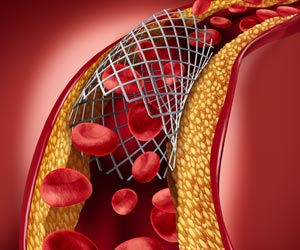A new drug called FG-2216 can stimulate production of the hormone erythropoietin (EPO) in dialysis patients—possibly offering a new approach to treatment, study says

The study evaluated an experimental drug called FG-2216. FG-2216 is a prolyl-hydroxylase inhibitor that stabilizes hypoxia-inducible transcription factor (HIF)—the "master switch" that normally tells the body to produce EPO in response to low oxygen levels. EPO stimulates production of oxygen-carrying red blood cells.
Treatment with FG-2216 significantly increased EPO production in dialysis patients, as well as in healthy people with normal kidneys. The greatest increase in EPO production occurred in dialysis patients whose kidneys were still present, but no longer functioning.
FG-2216 also stimulated EPO production in dialysis patients who had no kidneys. (Their kidneys had been removed at surgery for cancer or other diseases.) The increase in EPO production in patients without kidneys was almost as high as in people with normally functioning kidneys. In the patients without kidneys, FG-2216 apparently stimulated production of EPO by the liver.
Take-home message: The results question the conventional wisdom that dialysis-related anemia occurs because patients with advanced kidney disease can no longer make their own EPO. "Our results confirm that both the liver and the kidneys retain a significant production capacity for erythropoietin in end-stage renal disease patients," says Bernhardt.
Currently, patients with dialysis-related anemia receive EPO replacement therapy with drugs called erythropoiesis-stimulating agents (ESAs). Despite almost two decades of use, there remains an ongoing controversy related to the safety, appropriate clinical use, and in particular high costs of ESAs. If the new results are borne out by future studies, then using prolyl-hydroxylase inhibitor such as FG-2216 to help the body make its own EPO might provide a new alternative to ESAs.
Advertisement
Advertisement














